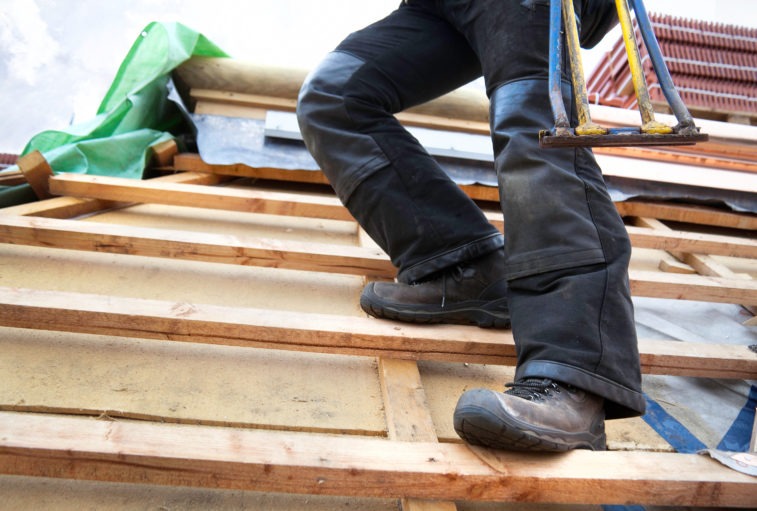Bunions, athlete’s foot, ingrown toenails, corns, calluses and hammertoes. These are common foot conditions of people who spend the majority of the day on their feet.
As the only full-time podiatrist in Dickinson, North Dakota, Clark Fullmer, D.P.M., treats oil field workers, farmers and ranchers, manufacturing plant employees, health care workers, waiters, cooks and others for many of these foot conditions.
What is podiatry?
Podiatry, the medical specialty that focuses on treatment of the foot and ankle, “is an amalgamation of orthopedics, dermatology, internal medicine and kinesiology,” he says.
Common foot problems
The most common problems of people on their feet all day include corns and calluses — annoying and painful areas of thickened skin caused by excessive pressure; and bunions and hammertoes — boney prominences that may be caused by wearing shoes that don’t fit, forcing your joints and toes into abnormal positions, especially in closed-toed shoes.
Conditions of the nail, such as ingrown toenails, trauma to the toenails and nail fungus are common, too. For those who wear steel-toe boots or shoes that make your feet sweat, athlete’s foot, a fungal infection of the skin that usually occurs between your toes, may cause uncomfortable itching and burning.
Treatment for these common conditions includes anything from self-care to medication to surgery.
Gout a winter problem
In winter, Dr. Fullmer sees lots of patients with gout, a common form of arthritis that is characterized by sudden, severe attacks of pain, swelling, redness and tenderness in the joints, most often in the joint at the base of the big toe.
Gout can be diet-related.
“During frigid weather when oil workers are huddled inside the cab of their trucks trying to stay warm, they eat a lot of high protein snacks, like cheese and meats, and drink highly caffeinated drinks. Because it’s cold, they don’t think they need to drink as much, and all the caffeine acts as a diuretic and makes them dehydrated.
“The kidneys need to get rid of extra protein or it builds up in the body and can settle in the toes and ankles, becoming extremely painful. Some people can’t even put a sock on their foot because their big toe joint is so red, hot and swollen.”
Gout is treated with medication, lots of fluids, rest and a good diet.
It’s all in the shoe
Wearing the right shoes can make a big difference for those who stand a lot and have foot problems.
People with flat feet usually need control and support so their foot isn’t stressed or strained. Those with high arches usually need support with a cushioned insole as a shock absorber. Calluses can also develop if you’re wearing the wrong shoe.
Kids aren’t immune
Dr. Fullmer also sees a lot of pediatric patients with foot problems.
Their most common issues range from ingrown toenails and warts to club foot, which consists of long-term treatment of several castings as their skeleton matures.
Diabetes and foot pain
A large part of Dr. Fullmer’s practice is patients with diabetes. They often suffer from diabetic nerve pain in their feet, which is uncomfortable and keeps many from getting a good night’s sleep. They may also have ulcers that are slow to heal.
Dr. Fullmer encourages anyone with diabetes to pay close attention to their feet. “I tell my patients to look at their feet every night before they go to bed. Use a mirror, if needed, especially to see the bottoms of your feet. If you see any cuts, sores, blisters or bleeding, go to your doctor to take care of it right away.”
Help is available
One of the exciting new treatments in medicine and podiatry is regenerative medicine to heal chronic wounds using the patient’s own blood to promote tissue repair and accelerate healing.
In addition to his busy practice in Dickinson, Dr. Fullmer also provides outreach once a month to clinics in the North Dakota cities of Watford City and Beulah and Hazen.
And he reminds us all, “if your feet hurt, something’s not right. See your doctor. Get it evaluated.”
More stories
- Ergonomics reduces strain on worker bodies, employer costs
- Varicose veins: What are they? How are they treated?
- Is it safe to work up until my due date?
…
Posted In Dickinson, Family Medicine, Health Information, Healthy Living, Orthopedics, Rural Health, Workplace Health
